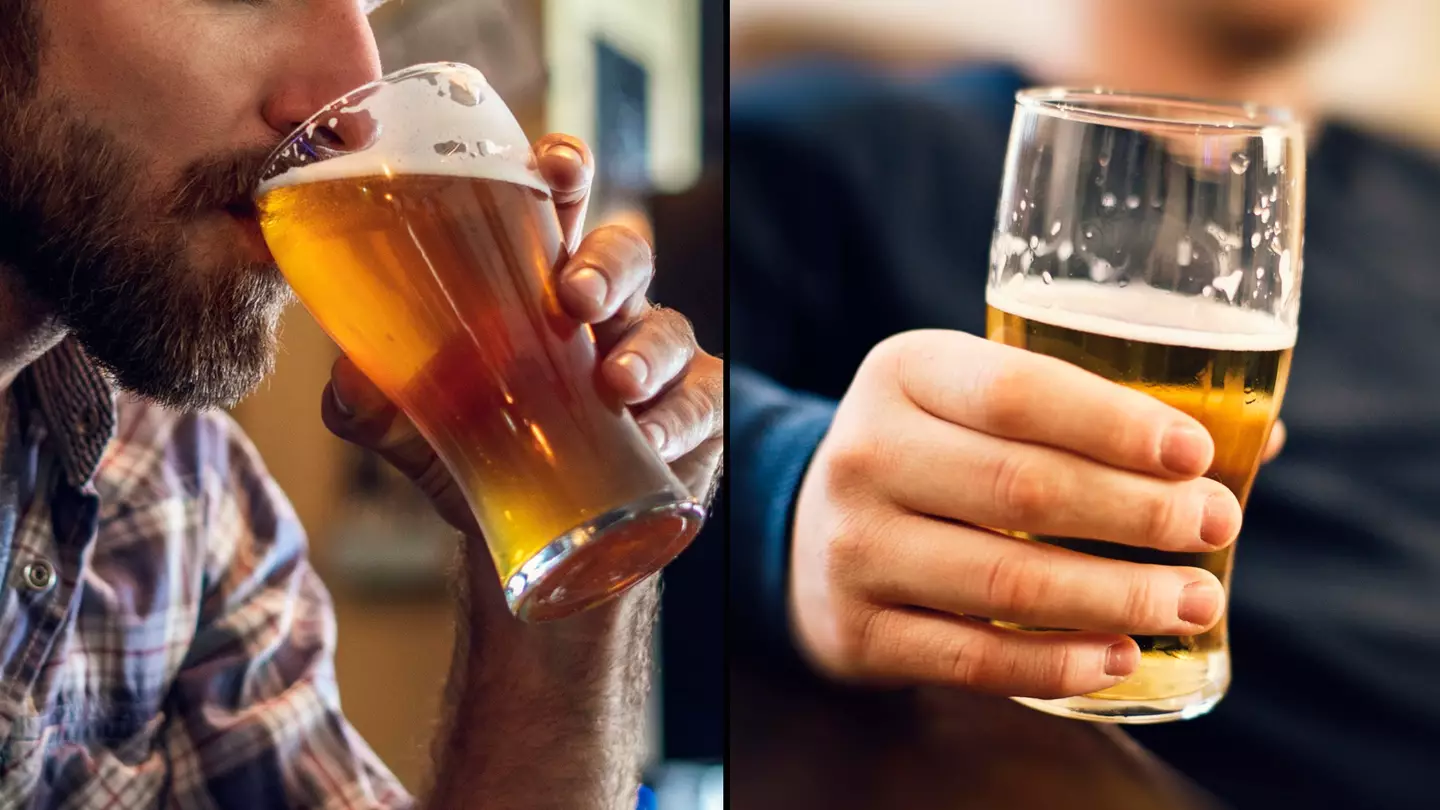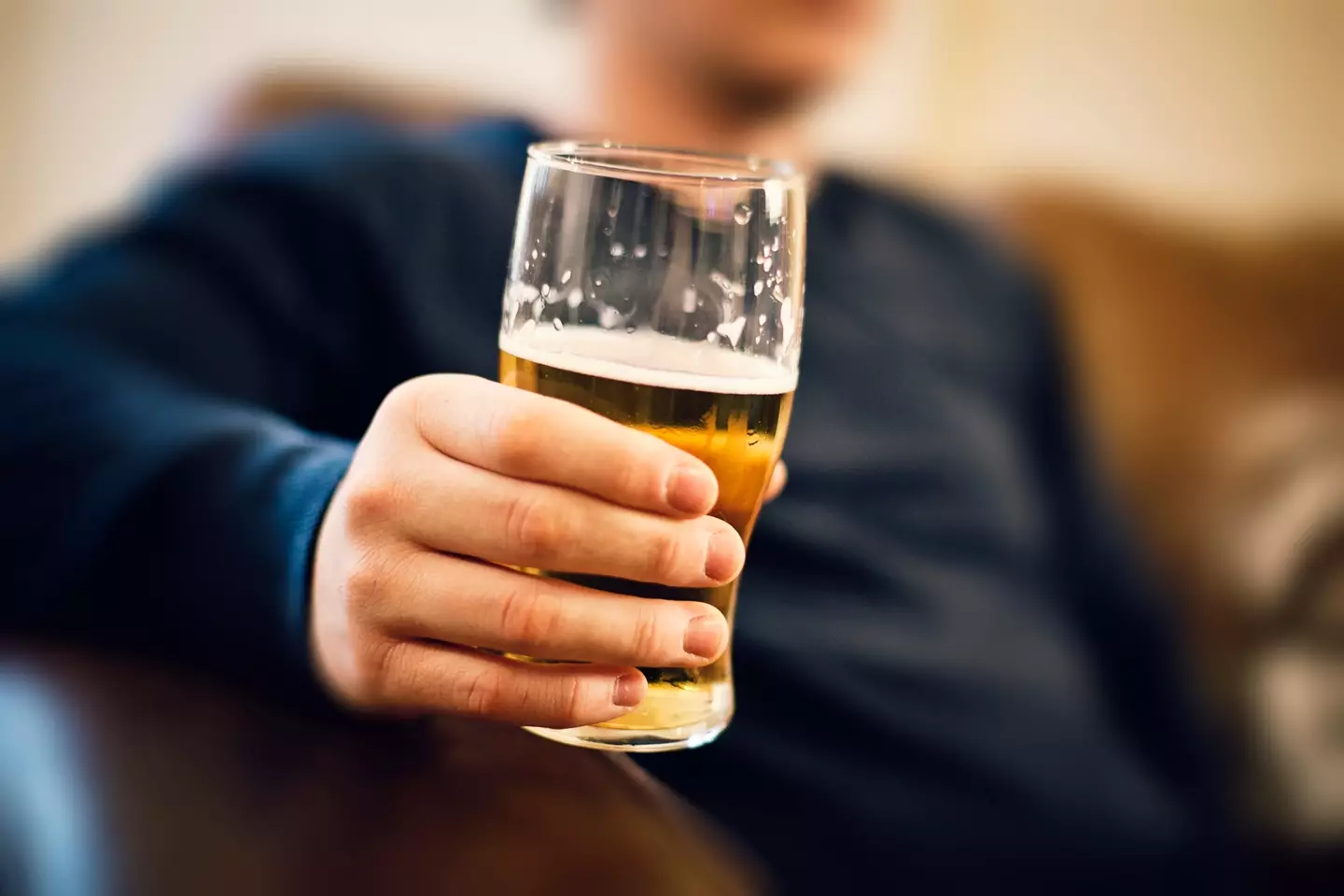
Warning: This article contains discussion of alcoholism which some readers may find distressing.
You can almost smell summer in Britain which hopefully means better weather, long nights in pub beer gardens with your mates and delicious sun-drenched BBQs with your family.
But while the season may be fun for some, you may begin to spot someone you’re close to consuming a lot of alcohol.
Advert
The NHS writes that women and men are advised not to drink more than 14 units a week on a regular basis.
Despite there being no safe drinking level, if you stick to this advice then you can be classed as a low-risk drinker.
But what about your pals who you notice routinely drinks to excess? Well, they could be considered an high-functioning alcoholic.
What is a high-functioning alcoholic?
While this isn’t an official medical term, it is usually referring to people who appear responsible and productive despite excessive drinking.
These people could be high achievers, tie down a good career and a healthy relationship and may even be in a position of power.
Due to their seemingly-well lifestyle, these people’s drinking habits can sometimes be overlooked.

Signs of someone being a high-functioning alcoholic
An expert has recently had their say on the two most common phrases that functioning alcoholics can use to cover up their issues.
Sarah Allen Benton, a licensed mental health counsellor, said they might think: “I have a great job, pay my bills, and have lots of friends; therefore, I am not an alcoholic’."
“Or they might make excuses like, ‘I only drink expensive wine’ or ‘I haven’t lost everything or suffered setbacks because of drinking’,” she continued to say.
However, Robert Huebner, PhD, of the National Institute on Alcohol Abuse and Alcoholism, said that these people actually aren’t doing as fine as they seem.
Speaking to WebMD, he warned that no one 'can drink heavily and maintain major responsibilities over long periods of time'.
“If someone drinks heavily, it is going to catch up with them.” he said.
According to the Priory Group, some more signs include mood changes, being unable to drink in moderation and being unable to socialise without a drink.
Other signs of a 'functional alcoholic' is putting themselves in risky situations, like drink driving or having risky sexual encounters, Benton adds.
What to do if you or someone you know is a high-functioning alcoholic?
So, if you’ve noticed someone who may fit the bill of being a ‘functioning alcoholic’ what should you do?
Due to alcohol being a sensitive issue, you may want to avoid confrontation to reduce the likelihood of the alcohol-dependent person becoming defensive, says Priory.

They say to broach the topic of drinking in a sensitive way and to remain both non-judgemental and empathetic.
The National Institute for Health and Care Excellence (NICE) recommends you use the alcohol use disorders identification test (AUDIT).
This tool can help to establish a drinking problem, with a score of 20 points or more possibly pointing to alcohol dependency.
Please drink responsibly. If you want to discuss any issues relating to alcohol in confidence, contact Drinkline on 0300 123 1110, 9am–8pm weekdays and 11am–4pm weekends for advice and support.
Topics: Alcohol, Food And Drink, Health, Mental Health
